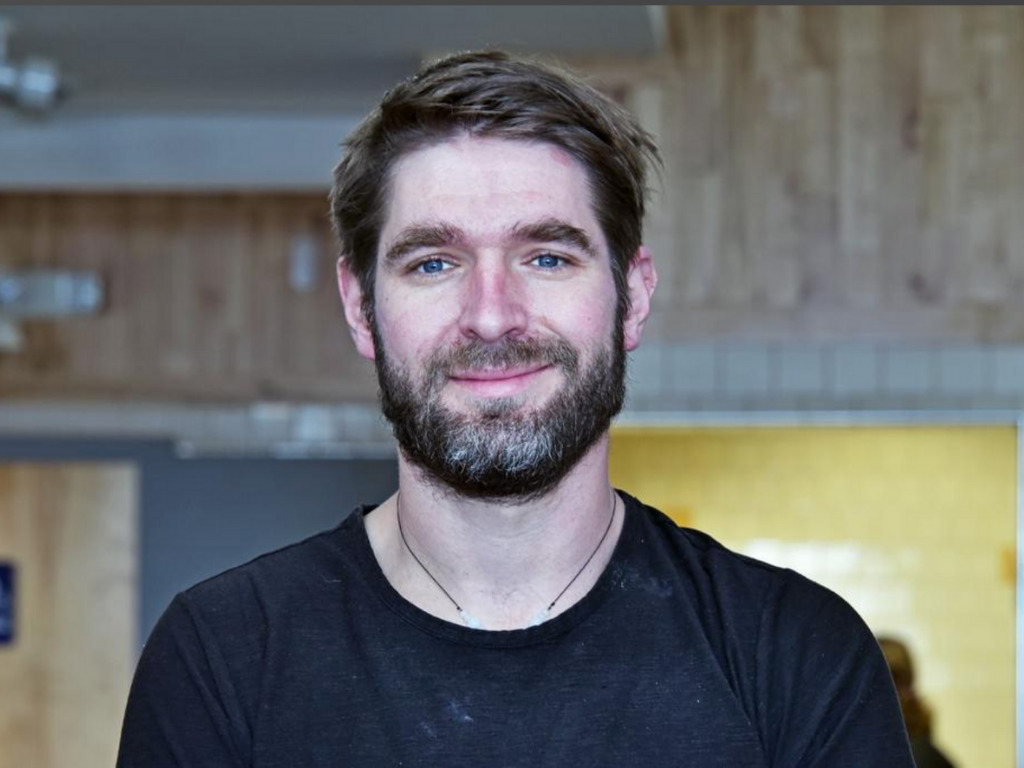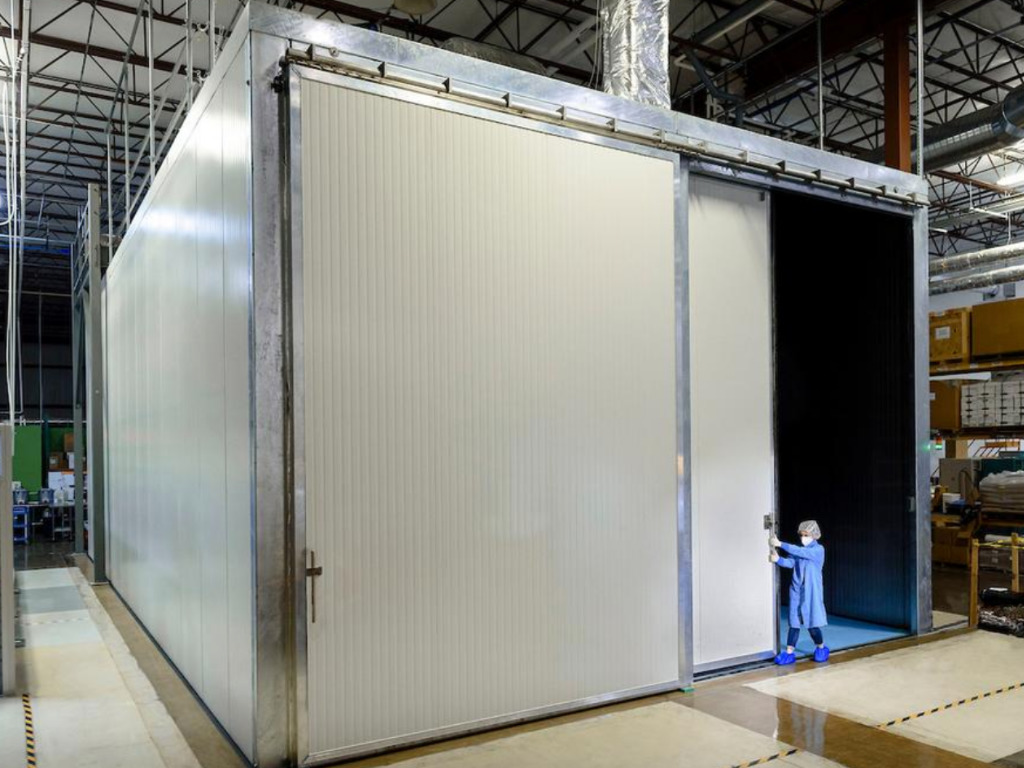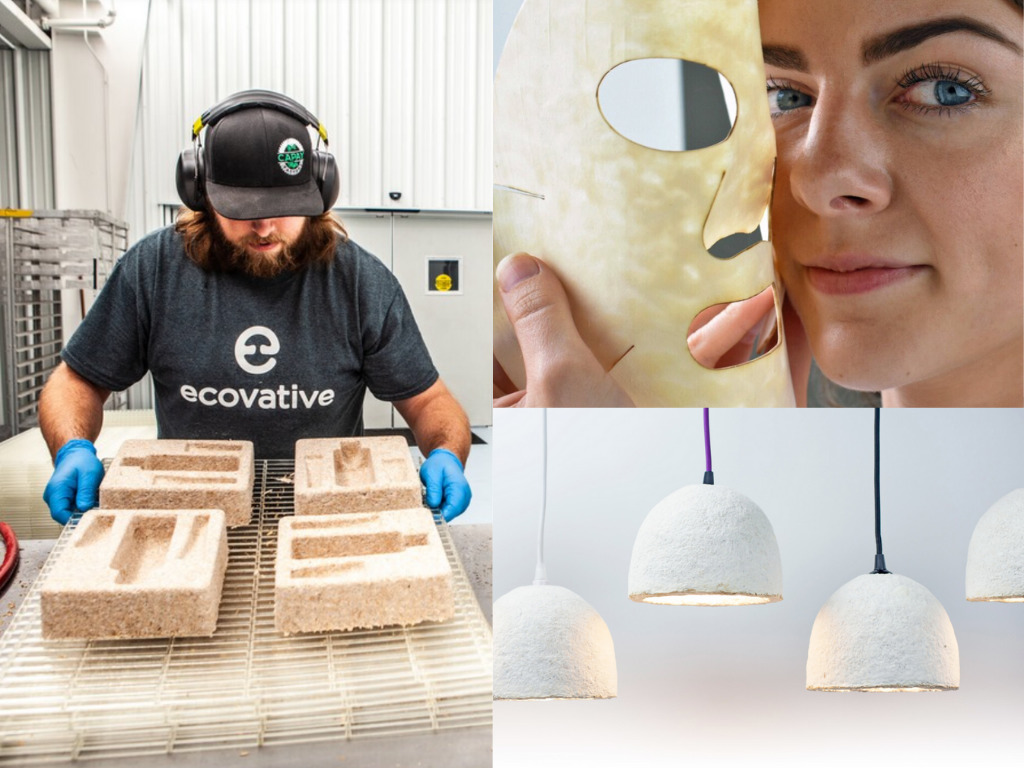4 Mins Read
Eben Bayer, founder and chief executive of Ecovative Design, a company that works on developing materials out of a mushroom root structure for the fashion, food, packaging and skincare industry, recently closed a US$60 million Series D funding round that will help the firm to expand its research, innovate on new materials as well as scale manufacturing.
Bayer has worked for the past 14 years to develop environmentally friendly materials out of a mushroom root structure called mycelium. In doing so, the company now provides alternative sustainable materials that can be utilized in foam packaging, a material that has received the most commercial support.
The New York-based company’s mycelium can also be incorporated in lamps, furniture, alternative leather in bags and shoes, food like alternative bacon as well as in skincare routines.
Viking Global Investors led the round and other investors included Senator Investment Group, AiiM Partners, Trousdale Ventures, as well as a few other undisclosed investors. The financing will help the company create a new set of applications for mycelium as well as enable the firm to manufacture for commercial and large-scale purposes across North America, Europe and Asia.
According to the company, mycelium’s biology allows the opportunity for it to be textured and built into proper complex structures and through bioreactors and workflows, highly-efficient products with a low carbon footprint is produced.
In a press release seen by Green Queen, Bayer said that the investment is a huge boost not only to their company but also for the alternative materials sector. “Today’s investment in our next-generation Mycelium Foundry will produce immediate results for our business and the planet. We have a track record of scaling and shipping mycelium-based products. This growth will accelerate our deployment of these important solutions at greater scale and across more industries.”

Today’s investment in our next-generation Mycelium Foundry will produce immediate results for our business and the planet. We have a track record of scaling and shipping mycelium-based products. This growth will accelerate our deployment of these important solutions at a greater scale and across more industries
Eben Bayer, founder and chief executive, Ecovative Design
Part of the funding will be kept aside to develop a discovery platform for innovative new materials and strains. Ecovative recently spun off another company in the food space: Atlast, an alternative meat protein startup that has a created a mycelium based bacon, recently secured US$7M to scale.
Apart from food, the firm has had eyes on the fashion industry leading to an agreement between Ecovative and Bolt Threads, that ended up in mushroom leather replacements and though the agreement has ended, Ecovative continues to take this forward by employing the material in shoes, belts, jackets and many more.
Mycelium is a unique material that outperforms other sustainable alternatives in industries as diverse as fashion and food. Ecovative pioneered the field of mycelium materials, and has invested in the research and development necessary to deliver it at the scale and cost required to make a significant impact
Evan Lodes, Partner at Senator Investment Group and an Ecovative board member

Managing director of Fashion for Good, Katrin Ley, said: “The demand for new biomaterials in the fashion industry, such as mycelium, far outstrips the current supply. Ecovative is tackling this challenge head-on, committing to building a next-generation platform capable of producing mycelium at scale.”
Ecovative recently partnered with U.K. packaging licensee Magical Mushroom Company to build four new facilities to fulfill sustainable packaging demand in the U.K. and EU markets.
Evan Lodes, Partner at Senator Investment Group, which invested in a 2019 round for the firm, and an Ecovative board member, said: “Mycelium is a unique material that outperforms other sustainable alternatives in industries as diverse as fashion and food. Ecovative pioneered the field of mycelium materials, and has invested in the research and development necessary to deliver it at the scale and cost required to make a significant impact.”
Mushroom-based material are gaining traction across the globe as companies are shifting to cruelty-free material be it in fashion or in other industries, for instance, recently, Stella McCartney unveiled garments that are created out of mushroom-based vegan leather with the help of biomaterials startup Bolt Threads.
A recent study showed that fungi have huge potential to not only be employed in textiles but can also be incorporated in sustainable bio wearables, like a replacement for processors in tech wearables such as Fitbits.
Lead image courtesy of Ecovative Design.



